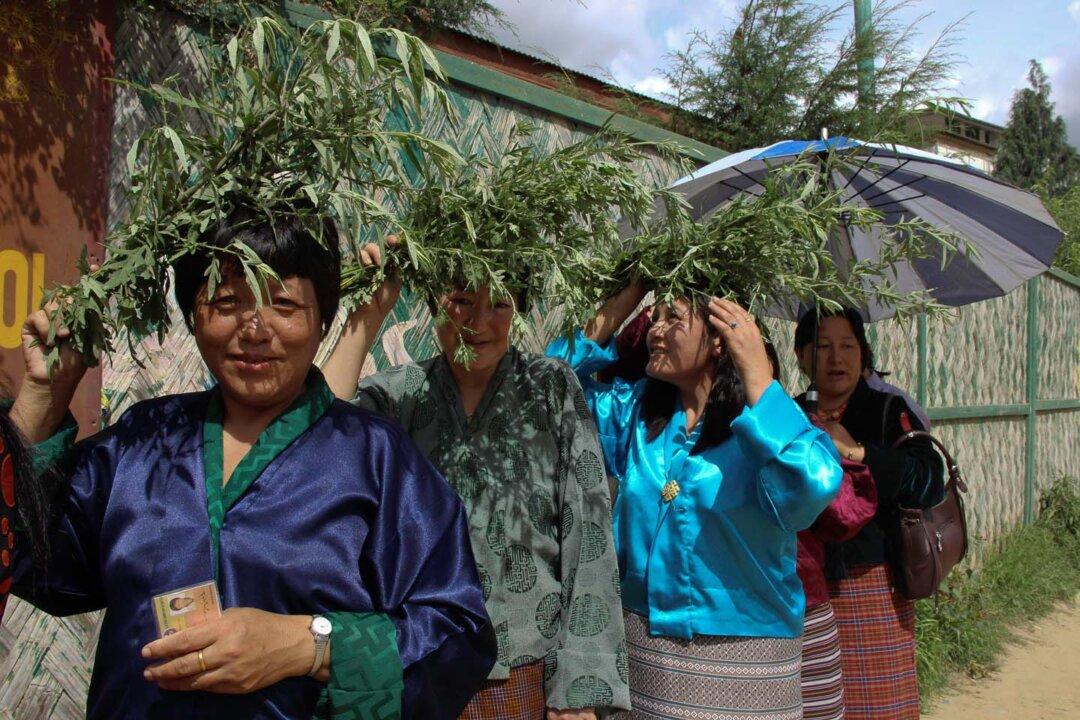In their only second parliamentary elections, Bhutanese people have voted their main opposition party to power with a huge margin on Saturday.
According to a release by the Election Commission of Bhutan, the nation witnessed 66 percent polling; the ruling Peace and Prosperity Party won only 15 seats while the main opposition, People’s Democratic Party (PDP) won 32.
“We didn’t expect such a drastic shift of votes. The ruling party was doing good in the debates and campaigns held on television. Since it’s a democracy, everything is possible in Bhutan,” said Kunkhen Dorji, a Butanese student studying at Jawaharlal Nehru University–New Dehli.
Dorji, who was also an intern at the Indian Institute of Peace and Conflict, feels Bhutan’s formerly ruling party did not provide adequate jobs for youth. He said the shift in votes could be a sign of discontent with economic mismanagement.
Bhutan was recently stuck by a land allotment scam wherein its home minister and speaker of the National Assembly were charged with corruption and given prison sentences by a district court. “The youth of Bhutan are very positive about the second General Elections. … Of course, issues like corruption, nepotism, and joblessness have sadden them, but it’s not what democracy brought with it,” said Dorji.
Elected members of parliament belonging to the PDP were expected to meet over the next few days to choose their parliamentary leader, with Tshering Tobgay likely to be named prime minister of the new government. He was opposition leader in the outgoing parliament.
The PDP has criticized the government for a recent deterioration of ties with India and campaigned heavily on the issue. The party also sought greater devolution of power to the people, a slogan that proved popular in rural areas.
“Lots of internal migration is happening in Bhutan. People from villages are moving to the cities,” Dorji said. “Political parties campaign in villages promising people good education and jobs for their children in the cities. City people also want adequate jobs.”
The remote nation of 738,000, nestled between India and China held its first election in 2008 after King Jigme Khesar Namgyel Wangchuk voluntarily reduced the monarchy’s role in running the country.
The primary elections earlier in May eliminated three political parties out of five and left Bhutan’s ruling party and the main opposition party to contest the conclusive poll.
The results showed that many supporters of the three parties who lost backed the PDP. In the primaries, the Peace and Prosperity Party, headed by outgoing Prime Minister Jigmi Y. Thinley, secured 45 percent of the vote compared to the PDP’s 35 percent.
In Saturday’s election, 850 polling booths were set up, including inaccessible mountainous villages. Voting was done through electronic voting machines and postal ballots.
A notice issued to people by the Chief Election Commission of Bhutan, Kunzang Wangdi said, “All registered voters are urged to come out to vote to ensure that you have your say in the election of the Party of your choice in the National Assembly with the important mandate of the Executive as well as a Legislative House under the Constitution of Kingdom of Bhutan.”
Associated Press has contributed to this report.





